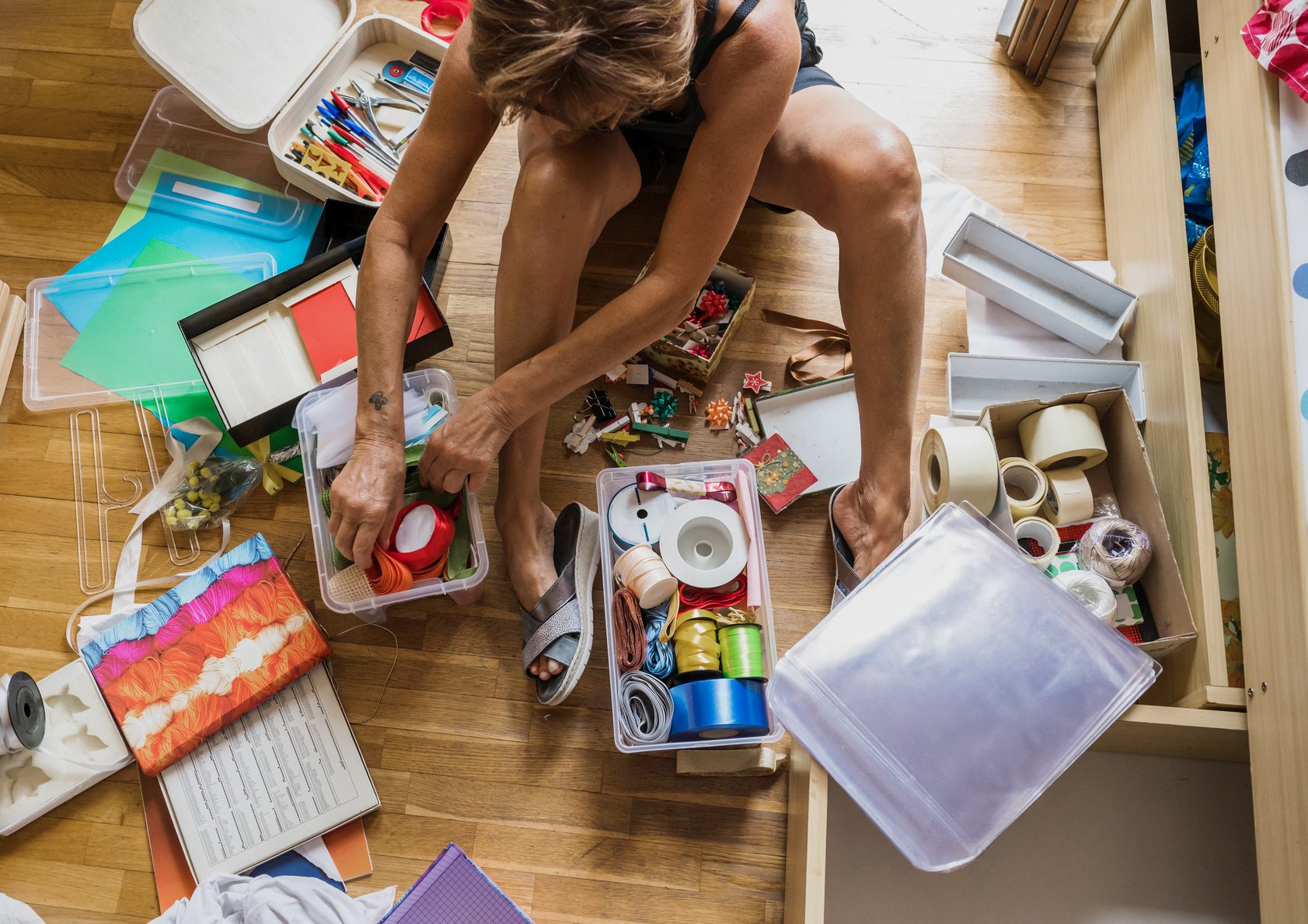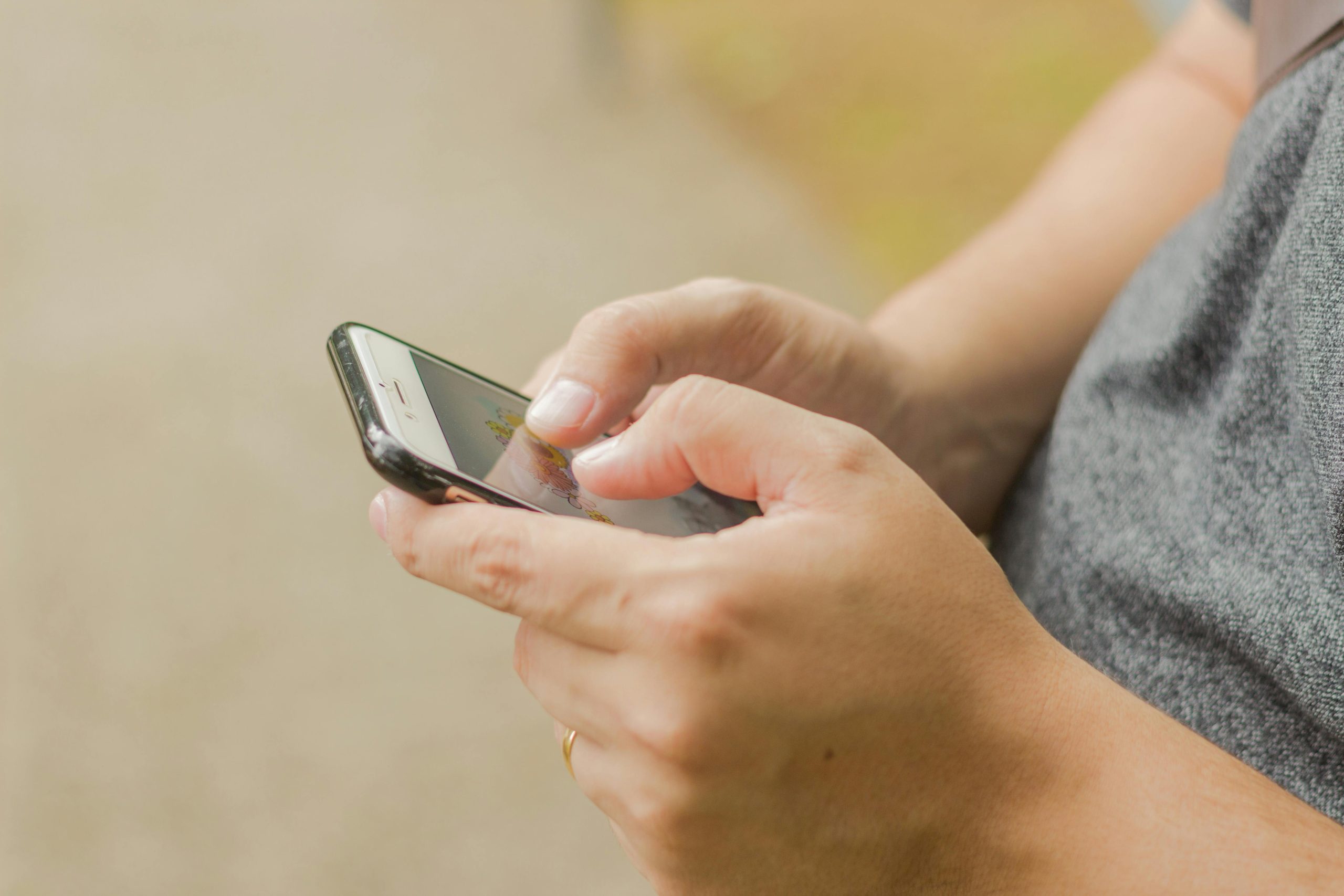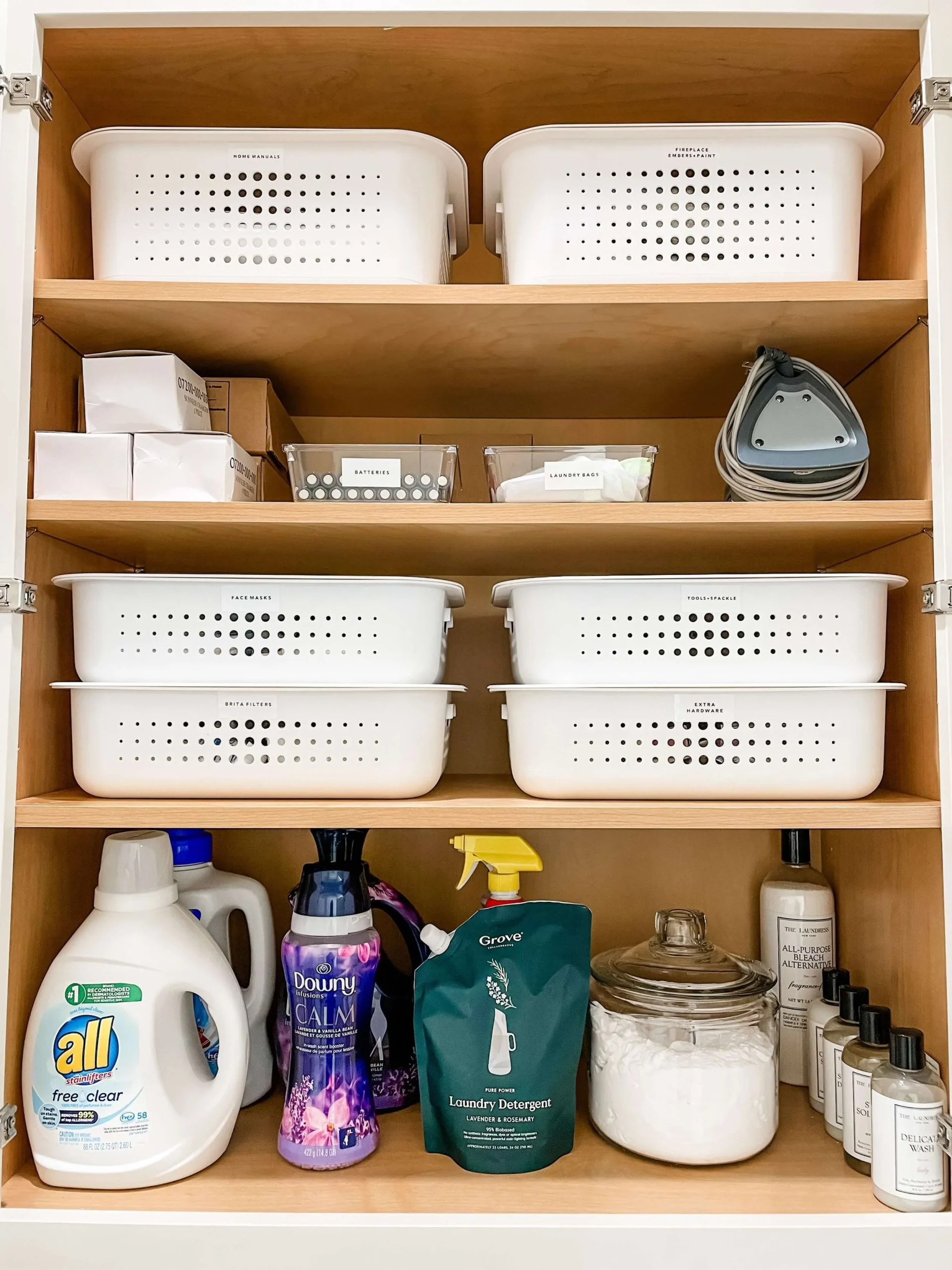The Impact of Decluttering on Personal Relationships: Creating Space for Meaningful Connections

Understanding the Impact of Clutter on Relationships
In today’s fast-paced world, clutter has become a pervasive presence in our lives. However, it’s not solely about the physical items that accumulate around us; it also encompasses the emotional baggage we carry. This accumulation often creates significant barriers in our personal relationships, hindering meaningful connections among family members, friends, and partners alike.
Decluttering transcends the routine practice of tidying up—it’s a deliberate journey toward creating a more harmonious life. By making intentional choices regarding what we keep and what we release, we can profoundly alter our emotional landscapes and the dynamics within our relationships. Here’s how decluttering can transform our interpersonal connections:
- Enhanced communication: A clean environment fosters clearer conversations. For example, when a couple declutters their shared living space, they can engage in more focused discussions without the confusion and distractions arising from piles of unorganized belongings.
- Emotional clarity: By eliminating excess items, individuals can better concentrate on what genuinely matters in their relationships. This can lead to prioritizing quality time over material concerns, helping partners to reconnect emotionally.
- Improved mood: Numerous studies have shown that a decluttered environment correlates with reduced anxiety and stress levels. An organized home can lead to a soothing atmosphere that encourages relaxed interactions, making it easier to address conflicts and enjoy each other’s company.
Creating physical space not only promotes a sense of order but also facilitates emotional space. Imagine if your living room transformed from a chaotic storage area into a welcoming environment meant for family gatherings. This shift can significantly impact the quality of interactions during those moments that we hold dear. Instead of focusing on a crowded and disorganized space, families can engage in heartfelt conversations, play games, or simply enjoy one another’s company.
Furthermore, decluttering might not just apply to physical items but also to emotional entanglements. Letting go of old grudges or unresolved tensions can clear the air for renewed connections. Just as we might donate unused possessions to local charities, we can also choose to release negative feelings, creating room for positivity and understanding.
As we delve into the relationship between decluttering and enhanced personal interaction, it becomes evident that a more organized environment opens doors to fulfilling connections. By embracing the simple yet effective act of tidying up, we can enrich our relationships, foster stronger emotional ties, and ultimately enhance the quality of our lives. Begin your decluttering journey and observe how it can lead to deeper bonds and a more meaningful existence.
DISCOVER MORE: Click here to simplify your wardrobe
The Psychology of Clutter and Its Effects on Relationships
The relationship between clutter and our emotional well-being is a complex one. Studies reveal that clutter in our environments can lead to increased feelings of stress and overwhelm, making it difficult to foster meaningful connections with those around us. When our living spaces are packed with unnecessary possessions, our ability to concentrate and connect becomes compromised. This is particularly true in intimate settings, where the clutter of our lives can serve as both a physical and emotional barrier.
A cluttered home is often a reflection of a cluttered mind, which can impact interpersonal dynamics. Psychologists suggest that the state of our surroundings influences how we perceive our relationships. Here are some compelling aspects that explain this correlation:
- Increased distractions: Clutter can distract us from truly engaging with our loved ones. When surrounded by disorganization, our attention tends to drift toward the mess rather than meaningful conversations. Simple tasks such as having dinner together can be overshadowed by piles of items that need organizing.
- Heightened tension: Studies conducted by the American Psychological Association show that clutter contributes to overall stress levels, which can create tension in relationships. This buildup of stress can manifest in irritability and conflict, making it difficult to nurture strong bonds.
- Perceived burdens: When the burden of clutter becomes overwhelming, it can distill a sense of guilt or frustration among family members. This joint burden can foster resentment, particularly if one partner feels they are more responsible for maintaining an organized space than the other.
Decluttering not only alleviates these stressors but also promotes a shift in mindset. By engaging in this process, individuals and couples have the opportunity to align their values and prioritize their connection. A well-organized environment opens up possibilities for shared activities and quality time, further strengthening relationships.
Moreover, decluttering can serve as a catalyst for effective communication. One of the first steps in the decluttering process is to involve others in decision-making. Whether it’s sorting through sentimental items with a partner or organizing shared spaces with family members, this teamwork fosters collaboration and shared responsibility. The process itself becomes a bonding activity, allowing for open discussions about preferences and memories associated with the items.
For example, when couples sort through keepsakes from their past, they not only declutter their space but also find new opportunities to reminisce about shared experiences, reinforcing their emotional connection. This shared journey enhances understanding and creates an atmosphere where partners feel more connected to each other.
As we navigate the intricate details of decluttering and personal relationships, it becomes clear that the act of clearing space has profound implications for the quality of our interactions. Whether it’s improving communication, reducing stress, or fostering teamwork, the benefits of decluttering extend far beyond physical organization and into the realm of emotional fulfillment.
| Advantages | Effects on Relationships |
|---|---|
| Increased Focus | Clutter often distracts from conversations, reducing meaningful interactions. |
| Enhanced Communication | A decluttered space fosters a calming environment, promoting open dialogue. |
| Emotional Well-being | Reduced clutter can lead to lower stress levels, benefiting interpersonal dynamics. |
| Quality Time | An organized space allows for more shared activities, enriching connections. |
Decluttering goes beyond tidiness; it opens the door to improved personal relationships. As individuals clear their physical space, they often experience an inward change, fostering clarity and calm. This shift can significantly enhance communication and understanding among loved ones. For example, with a serene environment, partners may find it easier to engage in difficult conversations, as they are no longer distracted by the chaos around them.Moreover, emotional well-being is intimately tied to our surroundings. A clean space can contribute to a sense of peace, which in turn creates a conducive atmosphere for building deeper connections. The absence of clutter also minimizes stress, allowing relationships to flourish uninhibited by the weight of physical disarray. Thus, by embracing the practice of decluttering, you not only create a pleasant environment but also pave the way for more harmonious personal interactions. Each item removed from your space signifies a step towards clearer communication and meaningful connections. The ripple effect of such positive changes in one’s surroundings can be remarkable, inviting more joy and fulfillment into relationships.
DISCOVER MORE: Click here to learn how minimalism can enhance your space
Transforming Relationships Through Shared Experiences
As decluttering becomes more than just a task, it seamlessly integrates into the fabric of personal relationships. When families engage in decluttering as a collective effort, the experience not only clears the physical space but also fosters emotional resilience and deepens connections. Shared experiences such as these are critical in forging unity among family members, especially in today’s fast-paced world where meaningful interactions are often sacrificed for convenience.
Research indicates that engaging in collaborative tasks can significantly elevate relationship satisfaction. A study by the National Institutes of Health highlights how participants who shared common goals reported higher levels of affection and commitment toward each other. Thus, when families unite to conquer clutter, they cultivate not only a sense of ownership over their space but also a shared purpose that strengthens their familial bonds. Outreach programs designed to help families declutter have shown immense potential in enhancing these familial ties, particularly among those struggling with emotional burdens.
Furthermore, decluttering acts as a springboard for healthier relationship dynamics. Consider the scenario where a partner is sentimentally attached to items from a previous relationship. Instead of evoking envy or resentment, tackling this issue through decluttering can evoke profound discussions and allow both partners to voice their feelings openly. Such exchanges foster vulnerability while enhancing trust, critical facets in any relationship. Incorporating this kind of open dialogue around decluttering not only clears physical space but also removes emotional clutter that can dampen a relationship.
Additionally, there is a strong link between physical space and emotional availability. By nurturing a calm, organized environment, we naturally create spaces that encourage intimacy and connection. Think of the cozy feel of a decluttered living room where friends gather for heartfelt conversations over coffee. Those moments become transformative, as they allow for genuine connection unhampered by chaos. Studies show that individuals who maintain tidier spaces are more likely to have enhanced social interactions, suggesting that a clear environment invites a clearer mindset.
As American homes evolve, an undeniable trend emerges—communication through decluttering empowers individuals. This narrative underscores the importance of intention: by consciously choosing to declutter, we are also choosing to prioritize our relationships. The act can be metamorphic, as it becomes a shared journey rather than a solitary endeavor. This theme resonates with countless groups today, as communities come together through decluttering workshops and events focused on communal living, revealing a collective desire to enhance social networks.
Moreover, specialists in relational dynamics are beginning to recognize decluttering as an essential tool in therapy settings. Therapists are now integrating decluttering activities into sessions to help couples confront underlying issues, using the physical act of clearing out spaces as a pathway to navigate emotional hurdles. Integrating such practices fosters a creative outlet that allows partners to explore their emotional landscapes in a supportive environment, proving that the relationship between decluttering and emotional health runs deeper than just tidiness.
This exploration into the impact of decluttering reveals an undeniable truth: the process is not merely about the physical space we occupy; it’s about the connections we cultivate within that space. Whether through direct communication, shared experiences, or therapeutic endeavors, decluttering opens myriad possibilities for individuals to engage meaningfully with one another.
DISCOVER MORE: Click here to simplify your digital life
Conclusion
In conclusion, the impact of decluttering extends far beyond the mere organization of physical belongings; it acts as a catalyst for fostering meaningful connections within personal relationships. As we’ve explored, engaging in decluttering not only rejuvenates our living spaces but also nourishes the fundamental aspects of emotional well-being. The shared experience of sorting through possessions encourages deeper communication, strengthens trust, and cultivates collaboration among family members and couples alike.
Furthermore, the act of creating a tidy and organized environment has been shown to enhance emotional availability, making room for genuine interactions that might otherwise be lost in the chaos of everyday life. Studies indicate that individuals who maintain an orderly environment tend to enjoy improved social interactions, thereby reinforcing the notion that a clear space promotes a clear mindset. Notably, as more therapists embrace decluttering as a therapeutic tool, its multifaceted benefits are becoming increasingly recognized across various settings.
As we navigate the complexities of modern relationships, it is crucial to acknowledge the true essence of decluttering as a shared journey of discovery and communication. The shift from viewing decluttering as a mundane chore to embracing it as an opportunity for engagement can lead to profound changes in interpersonal dynamics. Through collective efforts and intentional actions, we can create spaces that not only hold our belongings but also cherish the connections that ground us. Ultimately, decluttering paves the path for enriched relationships, serving as a reminder that every item we choose to keep or let go of has the power to shape the emotional landscape of our lives.

